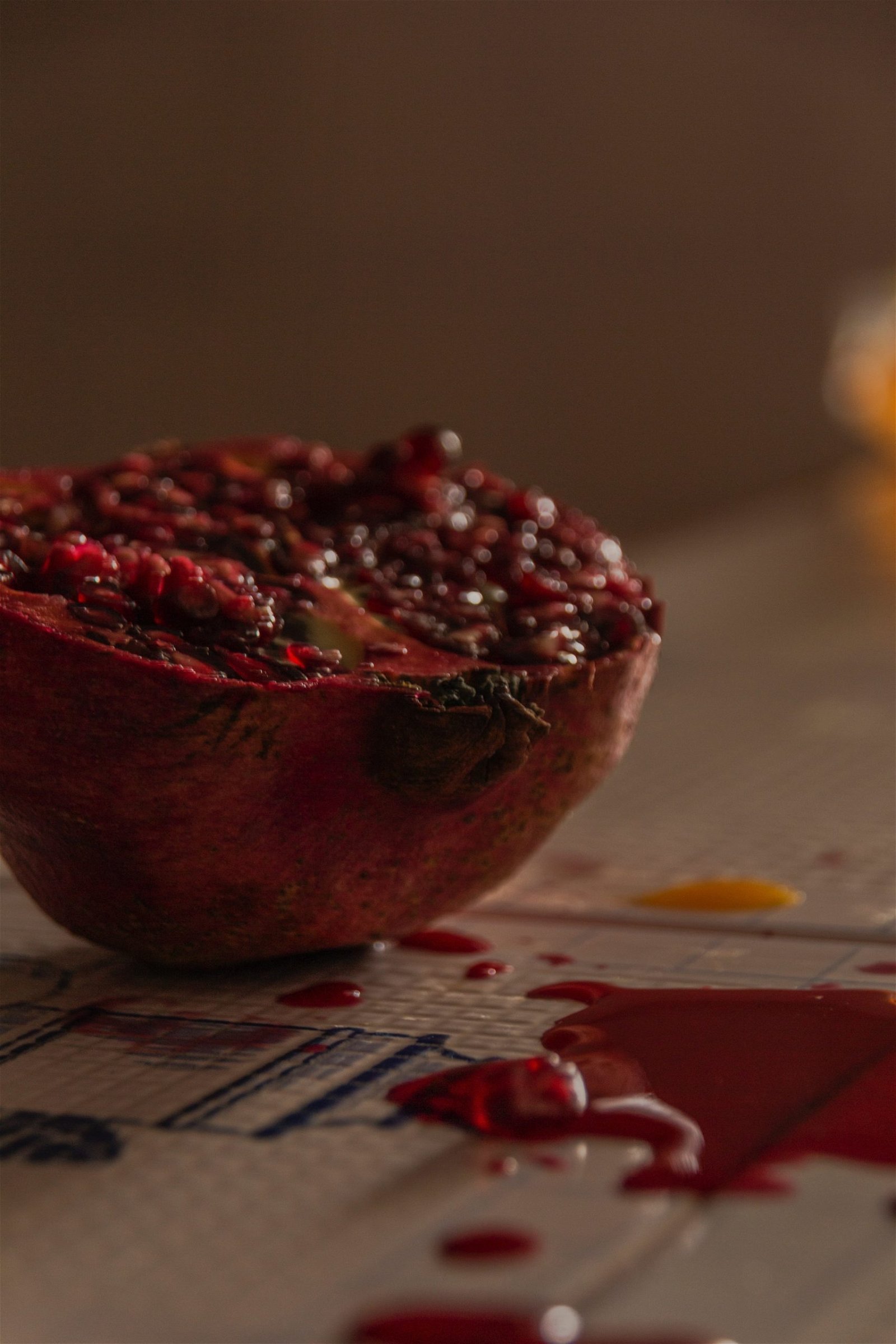
The berry of the fruit crushes upon my tongue,
bitter, sweet, savored. And the hills cascade into
waves of green, rising with the patter of my footsteps,
lowered by the weight of fruits of labor
that hang like a jacket from a windowsill,
placed in a position to be held but
always in fear of slipping during the next
round of layoffs.
I taste the sweet fruit that comes from markets but starts in
the fields, with laborers clutching baskets that pile weight
upon their shoulders and take the fruits from their lush,
supple birthplaces, those sprawling bushes and trees
that extend their branches like cries of help. The fruit pulses
against my tongue as I break the skin, pushing through its
outward barriers and tasting the drops of red, the somber
traces of an ending. As I bite, the fruit disappears. And I
remember that my presence makes others disappear,
like my ex-husband and sister-in-law.
In a few years, nothing will be left, except the carcass of this fruit
and the remaining pomegranates on those branches, cradled by a
sun’s fading orange horizons and
the languid flow of red wine juice
bleeding out.



I seem to recall that Sergei Paradzhanov (whose last name was originally Paradzhanian) made a movie called The Color of Pomegranates.